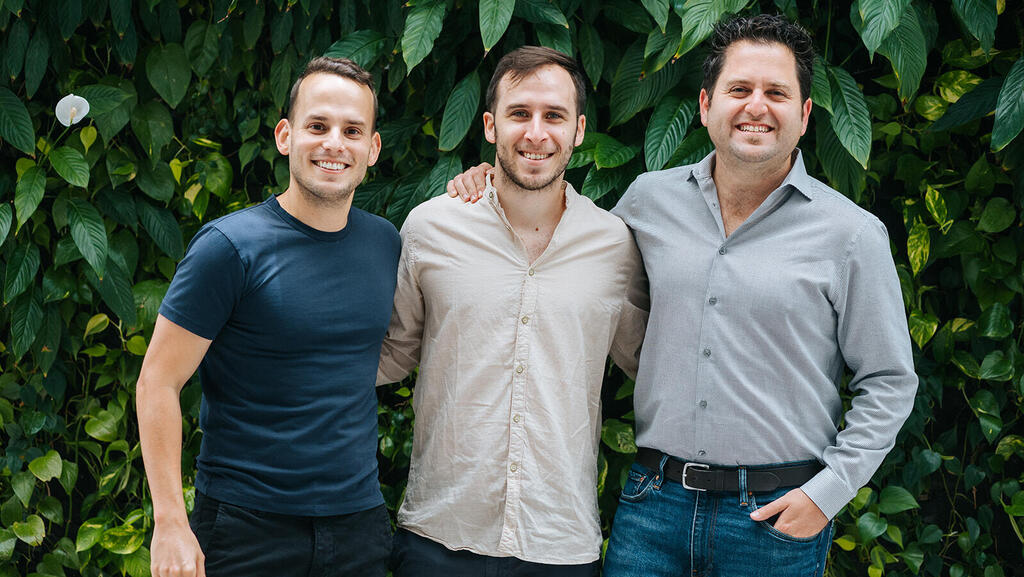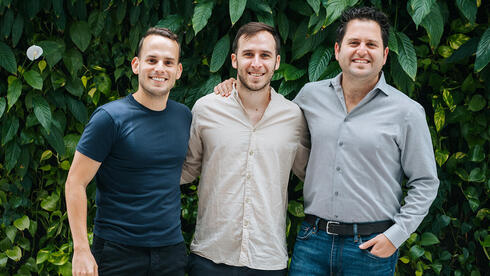
VC AI Survey
“AI hasn’t replaced human judgment, it has significantly increased our efficiency”
In CTech’s VC AI Survey, Fusion's Yair Vardi shares insights on how the technology has changed the investment space.
“AI has meaningfully improved our day-to-day operations, particularly around sourcing, diligence, and portfolio support,” explained Yair Vardi from Fusion VC. “We’ve integrated AI into research workflows, as well as into internal productivity.”
Vardi joined CTech for its AI Survey to share insights on how the technology has changed the investment space. “While it hasn’t replaced human judgment, it has significantly increased our efficiency and enabled us to cover more ground with a lean team,” he added.
You can learn more in the interview below.
Fund ID
Name and Title: Yair Vardi
Fund Name: Fusion VC
Founding Team: Yair Vardi, Guy Katsovich
Founding Year: 2017
Investment Stage: Pre-Seed & Seed
Investment Sectors: AI, Fintech, Mobility, Healthcare, Gaming, Foodtech
On a scale of 1 to 10, how has AI impacted your fund’s operations over the past year - specifically in terms of the day-to-day work of the fund's partners and team members?
7 - AI has meaningfully improved our day-to-day operations, particularly around sourcing, diligence, and portfolio support. We’ve integrated AI into research workflows (market mapping, competitive benchmarking), as well as into internal productivity (CRM enrichment, investor communication drafting, and data analysis). While it hasn’t replaced human judgment, it has significantly increased our efficiency and enabled us to cover more ground with a lean team.
Have you already had any significant exits from AI companies? If so, what were the key characteristics of those companies?
Yes. Among our portfolio, we’ve had notable exits where AI was a core differentiator (e.g., Novacy, acquired in 2024). These Vertical AI companies shared common traits: clear, high-value applications of AI in large markets, strong technical founding teams with deep domain expertise, and early evidence of customer adoption rather than just technology for its own sake.
Is identifying promising AI startups different from evaluating companies in your more traditional investment domains? If so, how does that difference manifest?
No. At Fusion we always start with the human aspect - the founding team. Regardless of sector, our evaluation begins with the team’s talent, resilience, and ability to execute. While AI companies may have unique technological considerations, our core investment lens doesn’t change: we back exceptional people first, and then assess how their vision, product, and go-to-market strategy can scale globally.
What specific financial performance indicators (KPIs) do you examine when assessing a potential AI company? Are there any AI-specific metrics you consider particularly important?
We look at traditional SaaS-style KPIs (ARR, gross margin, retention, sales efficiency). Again - at pre-seed, the founding team comes first.
How do you approach the valuation of early-stage AI startups, which often lack significant revenues but possess strong technological potential?
At pre-seed, valuations are primarily driven by team quality, market potential, and defensibility. We typically like to back vertical AI startups that disrupt large markets - for example, Samplead (Sales), Quack (Customer Support), Obol (Finance), NoBarrier (Healthcare IT), among others. We stick closely to our accelerator-driven model, which is valuation-sensitive, ensuring that companies are set up for long-term success. Importantly, we avoid joining the hype-driven “party rounds” that can inflate valuations prematurely and hurt founders down the line.
What financial risks do you associate with investing in AI companies, beyond the usual technological risks?
Rapid commoditization from incumbents embedding AI natively in their platforms
Do you focus on particular subdomains within AI?
We are broadly sector-agnostic but have been most active in generative AI, computer vision, AI-driven productivity tools, and AI-enabled enterprise SaaS.
How do you view AI’s impact on traditional industries? Are there specific AI technologies you believe will be especially transformative in certain sectors?
We believe AI will be transformative across finance (risk modeling, fraud detection), gaming (content generation), insurance (policy analysis and claims), construction (project optimization), legal (contract review and compliance), and industrial sectors (predictive maintenance, automation). In many cases, the winners will be those who integrate AI seamlessly into workflows rather than building AI for its own sake. Within our own portfolio, for example, LeanCon is bringing AI to the construction industry, while DigitalOwl is transforming the insurance sector.
What specific AI trends in Israel do you see as having strong exit potential in the next five years? Are there niches where you believe Israeli startups particularly excel?
We see the strongest exit potential is in vertical AI startups that target large, traditional US markets - sectors like construction, digital health, supply chain, legal, and finance. Israeli founders combine world-class technical depth with the agility to scale quickly in the US, which positions them well to disrupt these industries and build category-defining companies.
Are there gaps or missing segments in the Israeli AI landscape that you’ve identified? What types of AI founders are you especially looking to back right now in Israel?
We are especially looking to back teams who pair deep AI expertise with domain knowledge in large, traditional US markets. Our thesis is that Israel can produce the next wave of vertical AI leaders that bring real disruption to the biggest industries in the US economy. While cyber remains a strong Israeli niche, we are less interested in another narrow cybersecurity solution - instead, we actively look outside of that market to identify founders applying AI in sectors like construction, logistics, legal, gaming, finance, education, and healthcare.
